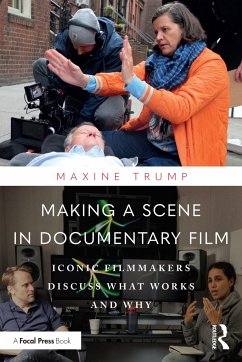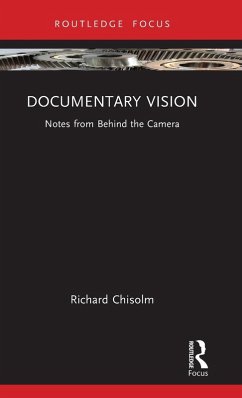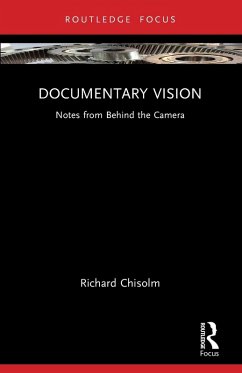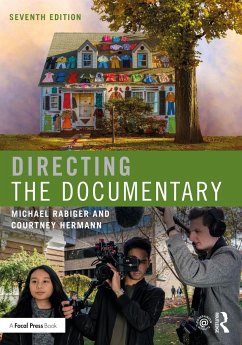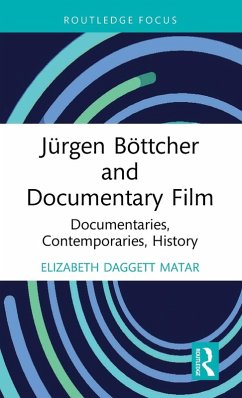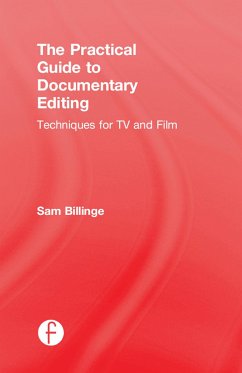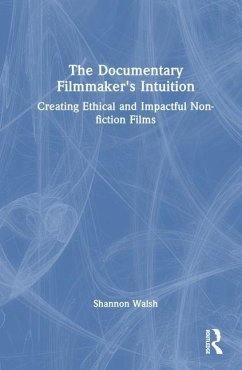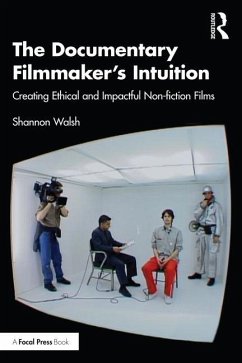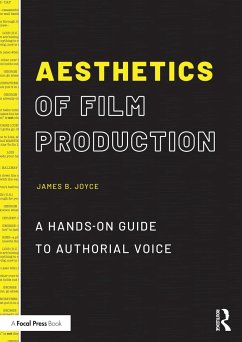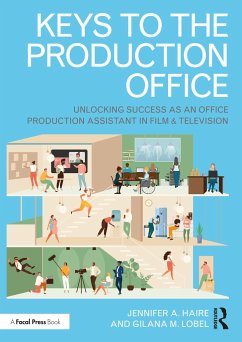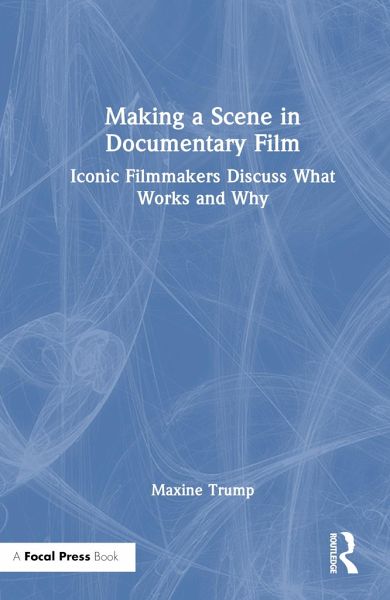
Making a Scene in Documentary Film
Iconic Filmmakers Discuss What Works and Why
Versandkostenfrei!
Versandfertig in 6-10 Tagen
144,99 €
inkl. MwSt.
Weitere Ausgaben:

PAYBACK Punkte
72 °P sammeln!
This collection of iconic interviews helps demystify the documentary filmmaking process by deconstructing the most relevant and important scenes in some of today's most well-known documentary films. It offers concrete, real-world examples of the situations and decisions that filmmakers navigate. We go behind the scenes with the creators to learn the methodologies and approaches these directors, cinematographers, editors, and sound recordists have taken to bring these amazing documentaries to life.What makes a great scene? Why are they so important in the construction of a great film? The inter...
This collection of iconic interviews helps demystify the documentary filmmaking process by deconstructing the most relevant and important scenes in some of today's most well-known documentary films. It offers concrete, real-world examples of the situations and decisions that filmmakers navigate. We go behind the scenes with the creators to learn the methodologies and approaches these directors, cinematographers, editors, and sound recordists have taken to bring these amazing documentaries to life.
What makes a great scene? Why are they so important in the construction of a great film? The interviews included offer excellent insights from the directors of the award-winning The Truffle Hunters, My Octopus Teacher, Collective, Knock Down the House, Dick Johnson Is Dead, and Trapped; the cinematographer of RBG, Julia, and Fauci; the editor of Time; and sound recordist of Tiger King. Award-winning documentary filmmaker and esteemed Sundance advisor Maxine Trump goes in-depth with each filmmaker, asking about their creative process. Why did these scenes make such a deep impression on both the filmmakers and their audience? Was it the cinematic style, the dynamic dialogue, the magic of observational filmmaking, or a surprising turning point?
This technical but creative and accessible resource is suitable for documentary filmmakers, aspiring directors, producers, editors, and cinematographers of non-fiction film. Each interview offers a fresh perspective to the emerging or professional filmmaker and audience alike.
What makes a great scene? Why are they so important in the construction of a great film? The interviews included offer excellent insights from the directors of the award-winning The Truffle Hunters, My Octopus Teacher, Collective, Knock Down the House, Dick Johnson Is Dead, and Trapped; the cinematographer of RBG, Julia, and Fauci; the editor of Time; and sound recordist of Tiger King. Award-winning documentary filmmaker and esteemed Sundance advisor Maxine Trump goes in-depth with each filmmaker, asking about their creative process. Why did these scenes make such a deep impression on both the filmmakers and their audience? Was it the cinematic style, the dynamic dialogue, the magic of observational filmmaking, or a surprising turning point?
This technical but creative and accessible resource is suitable for documentary filmmakers, aspiring directors, producers, editors, and cinematographers of non-fiction film. Each interview offers a fresh perspective to the emerging or professional filmmaker and audience alike.





